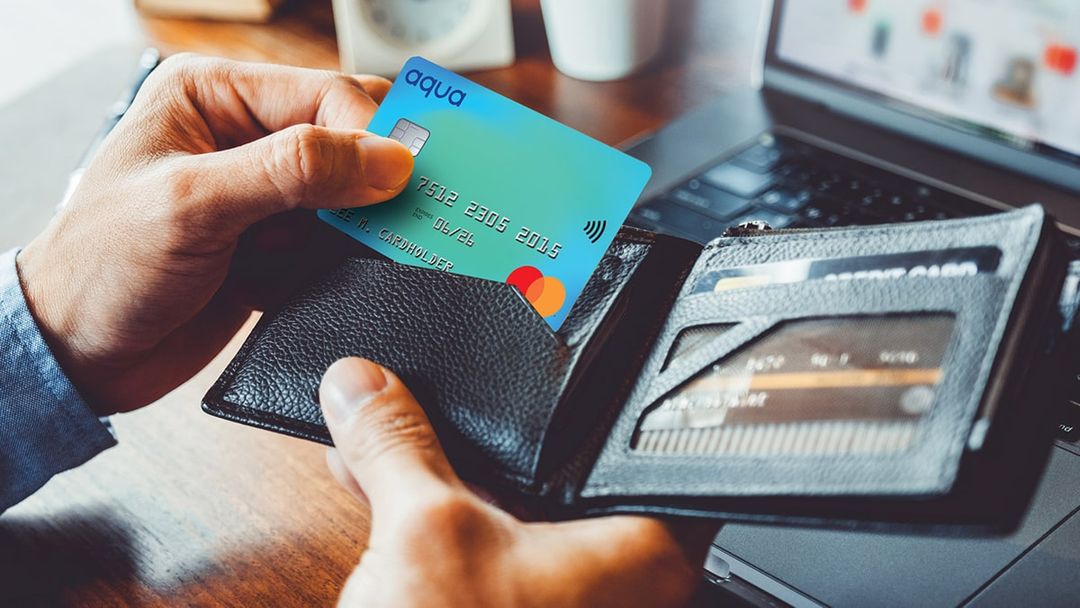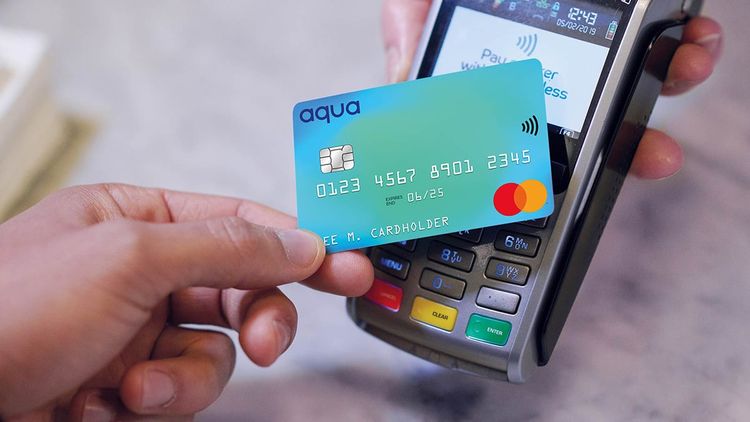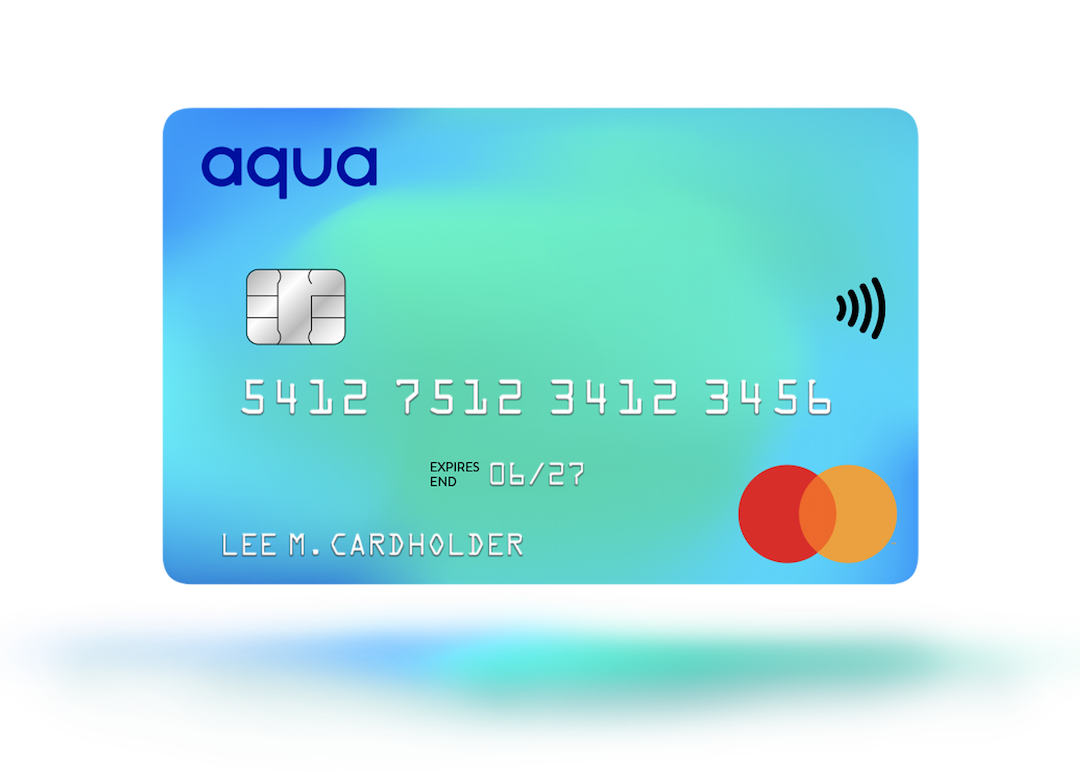Credit card vs debit card - what's the difference?
Understand the key differences of credit vs debit and learn which is best suited for your needs.

Taking out a new card can be a daunting task, especially when there are so many varieties and purposes to fit with your finances. In this guide, we'll take you through the process of choosing and applying for a credit card when you have a poor credit score, helping you to avoid common missteps and find the right card for your needs…
Credit cards vs debit cards
The key difference between credit and debit cards is that credit cards allow you to borrow money from the lender to make purchases, while debit cards allow you to spend money out of the funds you have in your bank account.
A credit card enables the owner to borrow money from that lender and pay later with interest. There are different types of credit cards, including standard cards, balance transfer cards, rewards cards, and more.
A debit card, on the other hand, is a card that makes payments by deducting money directly from the cardholder's current account, rather than borrowing from an institution.
Each credit card purchase is added to your outstanding balance, to be paid off at the end of your payment period, while debit card transactions are instantly deducted from your balance.
When should you use credit cards?
If you can use a credit card responsibly, you may prefer to use credit cards to pay for things rather than a debit card. If you have bad credit and are looking to fix it, you can use credit cards for bad credit for a better chance of approval and to support your financial security.
Below are a few things credit cards are convenient for:
- Online shopping - Credit cards have fraud protection and detection technology so it's safer to use than a debit card.
- Recurring payments like Netflix and Spotify
- Electronics and appliances - Credit cards offer purchase protection and/or insurance in case the item gets stolen or damaged.
- Travel expenses - You can earn rewards, like free upgrades, if you use a travel credit card to pay for your travel expenses.
- Rental cars - Some credit cards offer rental car insurance.
It’s not only a matter of when but also why you should use a credit card. Here’s a list of the pros and cons of using credit cards.
Pros of using credit cards
Let’s discover some of the benefits of using credit cards:
1. Build credit history
If you use credit cards responsibly, make on-time repayments and keep your card balance low, you’ll be able to build your credit history and raise your credit score.
2. Purchase protection
Under Section 75 of the Consumer Credit Act, if you make a purchase on your card that costs over £100 and up to £30,000, and there is something wrong with your purchase, you may be able to get the money back from your credit card company. For instance, if the item goes missing in the post and the retailer refuses to send a replacement. Or if you the company you’ve booked a holiday with goes out of business. Bear in mind that you should always attempt to get a refund from the retailer you bought from first, and you should make use of any product warranties or insurance you may have in place too.
3. Spread costs
If you buy something with a credit card today, you’ll have the option to pay for it over several months, instead of paying all at once. You are still required to pay the minimum payment so keep this in mind.
4. Fraud protection
The Consumer Credit Act 1974 prevents credit card companies from holding you responsible for any unauthorized purchases on your credit card as long as you report the loss or theft of the card on time. If the card was used for purchases before you reported it stolen, your maximum liability is £50. However, many credit card companies offer zero-liability protection. This means that no matter the circumstances, you won’t be responsible for any unauthorized purchases on your card.
5. Rewards program
Some credit cards offer rewards, such as cash back, loyalty bonuses, miles, or points that you can redeem for gift cards, travel, statement credits, merchandise, or cheques. It’s a good idea to check with stores you shop at frequently to see if they have a credit card that offers benefits, such as cashback, for purchases made on the card at that store.
Cons of using credit cards
Every good thing comes with a price. Here is what might happen if you fail to use credit cards properly:
1. Debt
When you buy things with a credit card, you’re spending the lender’s money instead of your own. Although you’re only required to pay the minimum amount each month, any amount you carry over is subject to interest. Racking up high credit card balances can lead to debt that you can’t pay off - not to mention that this results in a bad credit score in the long run.
2. Credit score impact
Making late payments, maxing out your card, and applying for new credit too often can seriously hurt your credit history and damage your credit score. To reverse this, you have to stop those bad habits and learn how to fix bad credit history.
3. Interest rates
A credit card is like a short-term loan. You have to pay back the money you spend. If you’re not using a 0% offer, any balance you carry past your payment due date will accrue interest.
4. Cash advances
It can be tempting to withdraw cash from an ATM using your credit card, but it is likely that you will incur fees and charges. Withdrawing cash on a credit card will also almost always impact your credit score in a negative way.
5. Fees
If you want to get a credit card, you need to know if your card charges fees, such as an annual fee, balance transfer, foreign transaction, late payment, or returned payment fees. Typically, the more rewards a credit card offers, the higher the annual fee will be. There are different types of cards, and the way each credit card works differs based on the offerings. Make sure you understand how credit cards work before applying for one.
When should you use debit cards?
Here are a few situations where it's better to use a debit card:
- If you want to control your spending
- If you need cash quickly
- When using a credit card will incur a fee
- If you already have high balances on your credit cards
Pros of using debit cards
Debit cards come handy for the following:
1. Debt avoidance
When you use your debit card for purchases, the funds are withdrawn from the money you already have in your bank account. This reduces the possibility of spending too much and accruing debt.
2. Fraud protection
Some debit cards offer fraud protection. So, when you report theft, or loss of your debit card, you will not usually be responsible for unauthorized purchases.
3. No annual fee
Unlike credit cards, debit cards don’t charge an annual fee. They also don’t charge fees for getting a debit card or withdrawing cash at your bank’s ATM.
4. Easier eligibility
Debit cards are easy to get. If you can open a bank account, you can get a debit card. Credit cards are more difficult to get because your eligibility depends on your credit history and other criteria, such as affordability.
Cons of using debit cards
There are additional considerations for debit cards, too:
1. Restriction
You can only use a debit card when there's enough money in your account, or you stay within the limit of your overdraft. If you don't have enough money to complete a transaction, your card will be declined.
2. No credit score impact
When you make transactions with a debit card, the bank doesn’t pass this information to credit bureaus (such as Transunion) and doesn’t help demonstrate you can repay money you borrowed on time. So, using a debit card does not help you build your credit score.
3. No rewards
If you don't have a reward checking account, you won't earn any cash back, points, or miles on purchases made with a debit card.
4. Fees
Even though debit cards don't charge annual fees, they can charge other fees to maintain your current account, including monthly maintenance, overdraft, returned items, and foreign transaction fees.
Which is better overall - credit card or debit card?
Both credit cards and debit cards have advantages and disadvantages. The one you choose should depend on what you plan to use the card for and how responsible you are with money.
If you tend to spend outside your means, it's better to use a debit card to prevent yourself from accruing too much debt that is difficult to pay down. Debit cards are also great for day-to-day spending.
If you want to earn rewards or build your credit score, credit cards are best. But this only works if you pay the full balance each month. Otherwise, you’ll damage your credit score.
If you have bad credit, an Aqua card could help you build better credit. When you manage your account well, Aqua can help you build a better credit score and comes with Aqua Coach, our free credit score tool available in the Aqua app. Track your credit score, learn what’s driving it and access credit-building tips. You can check your eligibility for an Aqua card today without impacting your credit score.
Failure to make payments on time or to stay within your credit limit means that you will pay additional charges and may make obtaining credit in the future more expensive and difficult.
Contributors

Vanessa Stewart
Vanessa is an editor at Aqua.

Victoria Smith
Victoria is an editor at Aqua.
You might also like
Slide 1 of 3
What is a credit card and how do they work? -...
Discover the basics of credit cards, how to use them, and the benefits of using credit cards in our comprehensive g...
Hayley Bevan

What is a credit limit?
What is a credit card limit? Discover how credit limits are calculated, what happens if you go over, and how to man...
Hayley Bevan

Understanding types of credit cards
Find out more about the common types of credit cards and which is right for you.
Vanessa Stewart
The smart way to build better credit
Aqua is the credit card that gives you the power to improve your credit score
